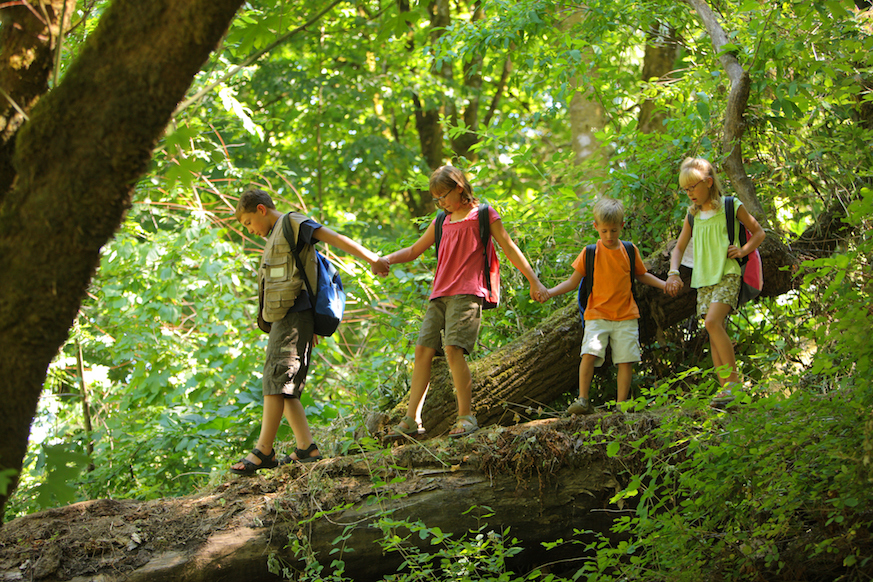If you thought summer camp was only about the fun, then think again. Between the long bouts of no technology, to the communication skills gained from interacting with other children, there’s actually a lot to be gained from the experience.
We spoke to Susie Lupert, the executive director of the American Camp Association, New York and New Jersey, to find out the benefits of sending your child to camp.
Boosts confidence
From learning to go down a zip line for the first time or tackling swimming 10 laps across a lake, camp helps builds a tremendous amount of confidence, says Lupert. After all, camp is all about learning new things and taking healthy risks. “They’re designed to give a child a sense that what they’re doing might be a little bit scary or different than what they’re used to, but that it’s a safe space to do that.” Plus, without constant parental supervision — children are typically away from their parents for quite a while, many of them overnight or for weeks at a time — they also foster a strong sense of independence. “They eventually learn how to make decisions and rely on themselves as opposed to their parents, which really builds confidence.”
Break from technology
In a world where children are constantly consumed by their digital devices, camp has become the break from technology that kids so desperately need, says Lupert. “[At camp] students aren’t spending their time texting. They’re actually talking, making eye contact and using real face-to-face communication, which is not occurring during the rest of their life,” she explains. While certain camps might have programs that involve some sort of screen time — ones that offer say, a photography or coding course — the majority of camps do not allow students to use any devices, says Lupert. It’s actually an “unrecognized gem,” she explains. “To be able to force that break is key for a child’s development. It has to happen, and fortunately, it’s really only happening at camps.”
Gain life skills
Between learning how to get over their initial homesickness to being forced to interact and make new friends, campers ultimately learn to be resilient and overcome obstacles, says Lupert. They also learn how to work on teams and cooperate with others, skills that are becoming increasingly more important in today’s world, she explains. “Employers aren’t interested in people who can just take standardized tests,” says Lupert. “They want people who have grit and determination, and understand what it means to work in a team, which are all skills you can learn at camp.”
It’s fun
At the end of the day, camp embodies the very idea of summer fun, says Lupert, and after working hard all year, that’s exactly what students need. “During the school year, there’s this lack of understanding about the importance of play,” she explains. But kids are supposed to be getting their hands dirty, trying to climb that rock wall or learn that new game, she continues. In that sense, “camp gives children this really valuable thing that we don’t value so much anymore,” says Lupert, “which is just, ‘Let kids just be kids.’ ”



















